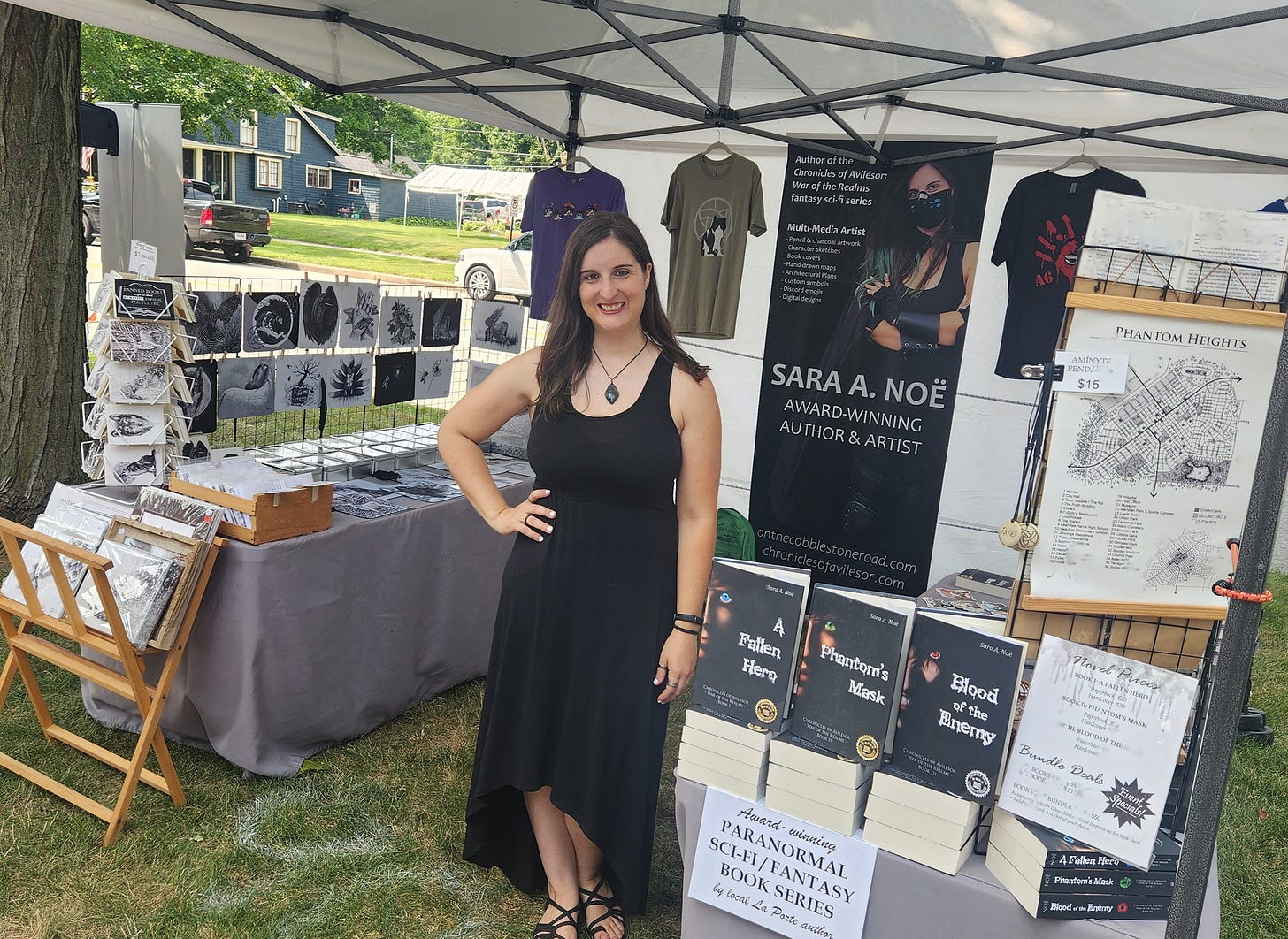Vendor Tip: 10 Factors to Help Determine Event Potential
How to spot strong prospects, good practices, and red flags
Every event is a gamble.
This year, that’s a lesson I’ve been reminded of again and again. Even setting up at repeat events I’ve done three or four years in a row has come with unexpected surprises. A streak of success is not a guarantee that a particular event will be good every time.
Case in point: I set up at a festival about a month ago. Historically, this festival has been great for me. The first year I did it, I sold out of paperbacks of my first novel. Each year was better than the last, despite major thunderstorms disrupting the festival last year.
This year… my sales were down 85% YOY (year over year).
As you can imagine, I was disappointed. And the blows kept coming. The following weekend, I attended a convention that had been another regular success on my schedule two years in a row. This year, my revenue was down 70% YOY.
On the flip side, my most recent event was a pleasant surprise when I sold out of almost all of the books I’d brought with me despite the foot traffic being way below my expectations. This was a festival I’d never done before, and it outperformed many of the repeat events that I thought would be successful again after last year’s performance.
Finding good events is challenging, especially when you can’t count on regular annual events being successful every single year. The market is unpredictable, which is why I like to hunt for new events each year to replace not only the bad ones, but also the mediocre ones that didn’t perform as well as I’d hoped. I strive to continue refining my strategic approach to my event calendar.
So, when hunting for new events, how do you boost your chances of targeting ones that have a high chance for success? In this post, I’ll break down 10 key factors to help you decide whether an event is worth taking a chance:
Professionalism
Marketing (Especially Online)
Attendee Interest
Event History
Location Demographics
Word of Mouth Recommendations
Booth Cost
Target Audience
Juried Applications
Vendor Lineup
#1 Professionalism
When you’re researching a potential new event, what is your first impression? Does it have a professional website and logo? Photos? Sponsors? Is contact information easily accessible?
Do you feel confident that the event coordinator put time and effort into creating a public profile that reflects proper planning, organization, and investment?
Or does it have an amateur vibe with poor graphic designs, typos, unprofessional fonts, bad stock images, and limited information?
#2 Marketing (Especially Online)
Does the event have much of an online presence at all? Is there an official Facebook event page and/or posts on other social media platforms?
Is the event coordinator advertising in other ways? For example, paid ads, radio features, flyers, local publications, signs, billboards, etc.
I’ve had instances where a vendor or patron recommended an event to me, but when I searched online, I barely found a trace of it. No official website. Mentions on social media but no event page or photos. A lack of any online presence is usually a telltale red flag that:
This is probably a new event, which means it doesn’t have an established following.
The coordinator isn’t doing enough to reach new people. If a simple Google search doesn’t bring up any information about the event, how are people supposed to find it and decide whether they want to attend?
There’s a possibility that it might be a scam. Some scammers try to get vendors to fill out bogus applications and pay a booth fee for an event that doesn’t exist. If you can’t find much information about an event, proceed at your own risk.
Keep reading with a 7-day free trial
Subscribe to On The Cobblestone Road to keep reading this post and get 7 days of free access to the full post archives.




